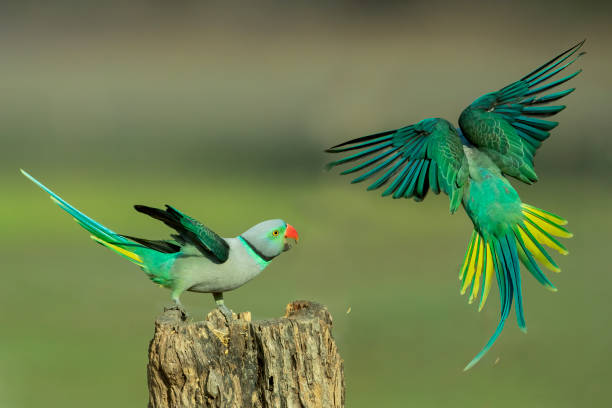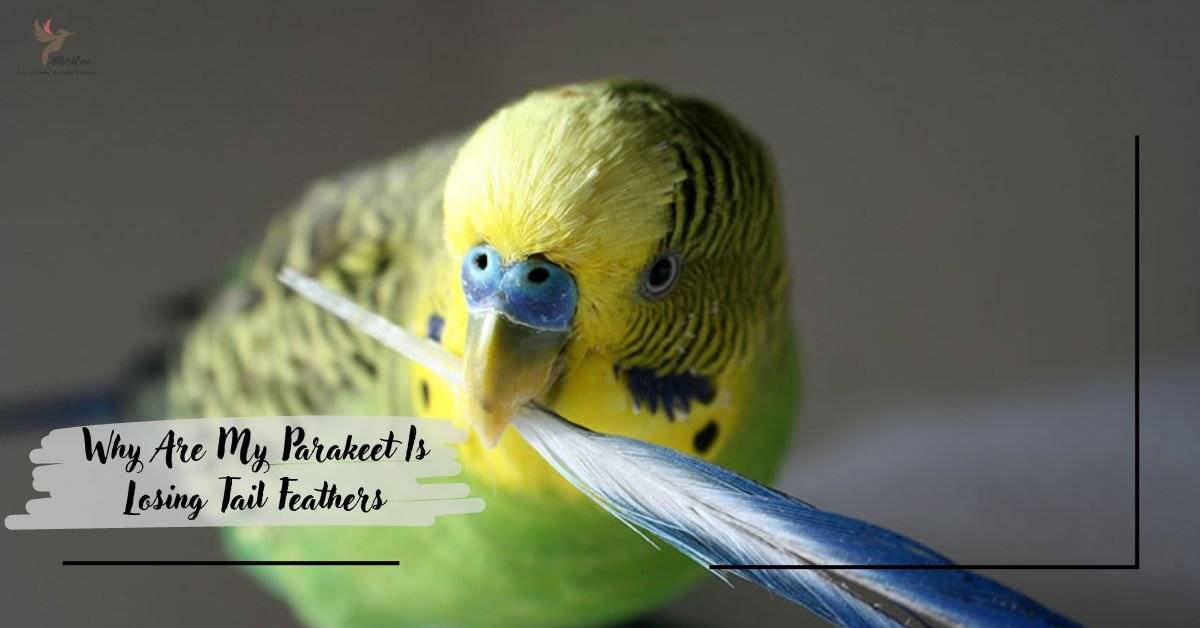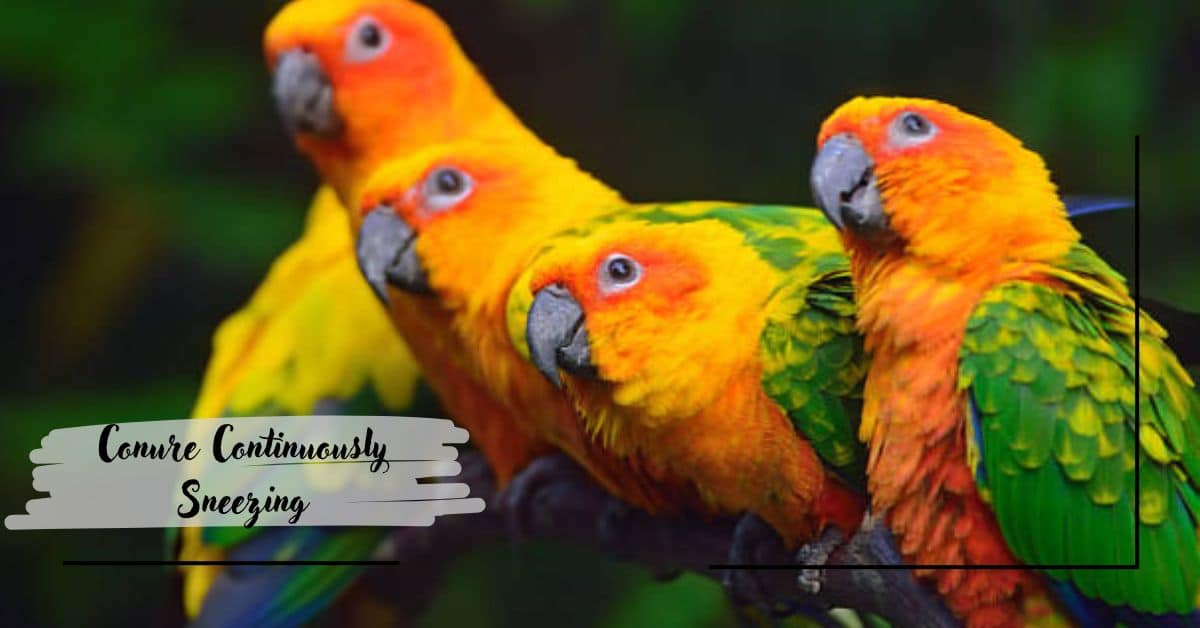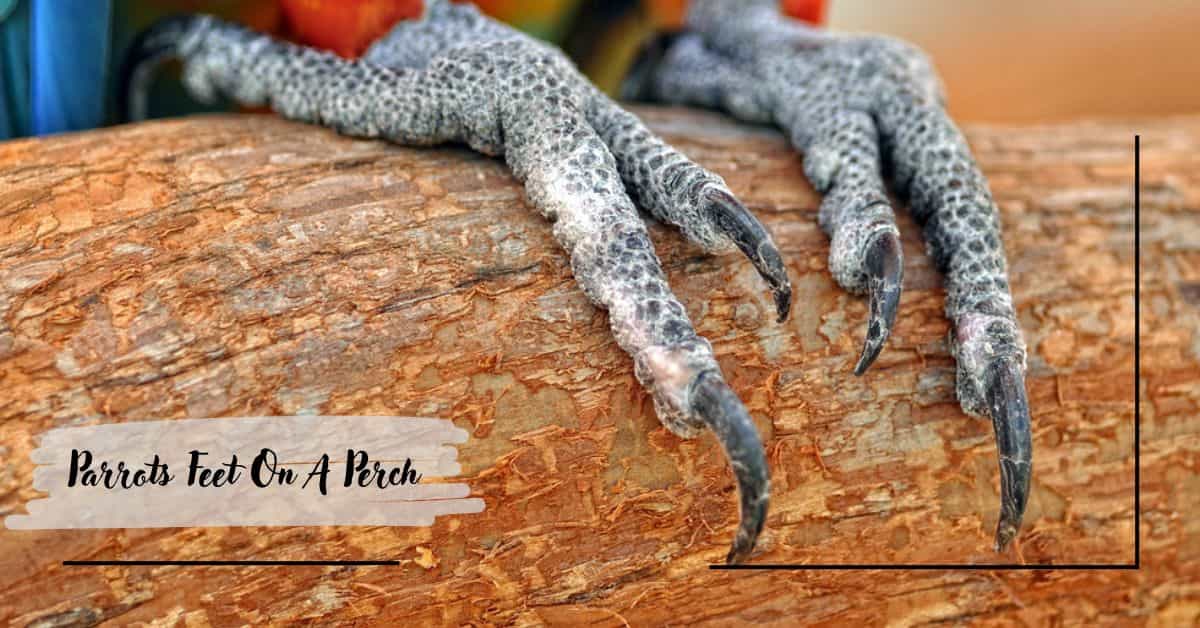Your parakeet might be losing tail feathers for several reasons. It could be normal molting, where old feathers fall out to be replaced by new ones. Other causes include stress from changes or lack of attention, boredom, or feather-damaging behavior from a cage mate. Problems like poor diet, hormonal imbalances, or infections can also lead to feather loss. To help, make sure your bird has a good diet, a calm environment, and regular vet check-ups.
What Are the Common Reasons for Tail Feather Loss in Parakeets?
Natural Molting:
Parakeets shed old feathers to grow new ones during their molting cycles. This is completely normal and happens multiple times a year.
Stress or Anxiety:
Changes in your bird’s environment, loud noises, or lack of social interaction can cause stress, leading to feather loss.
Feather Plucking:
Some parakeets start plucking their own feathers due to boredom or stress, which can lead to tail feather loss.
Parasites and Infections:
Mites and other parasites can irritate the bird’s skin, causing feather loss. Infections can also damage feathers.
Nutritional Deficiency:
A lack of proper nutrients in your parakeet’s diet can lead to poor feather quality and shedding.
Injury:
If your bird injures its tail, either by getting it caught in cage bars or falling, it could lose tail feathers.
My Personal Experience:
Why Are My Parakeet Is Losing Tail Feathers? I once noticed my parakeet, Kiwi, losing tail feathers and was really concerned. After some research and a vet visit, I learned that it was just a part of his natural molting process. Kiwi was simply replacing his old feathers with new ones. To help him through this, I made sure he had a quiet, comfortable space and plenty of toys to keep him entertained. Watching him go through this process taught me a lot about how to care for my feathered friend and made me appreciate the natural cycles of pet care.
When Should I Be Concerned About My Parakeet’s Tail Feather Loss?
While occasional feather loss is normal, there are times when it could be a sign of a problem. You should be concerned if:
- Signs of Excessive Feather Loss: If your parakeet is losing a lot of feathers quickly or has bald patches, this could indicate a more serious issue.
- When Feather Loss Is Paired with Other Symptoms: If feather loss is accompanied by other symptoms like lethargy, weight loss, or changes in behavior, it’s important to consult a vet.

Is It Normal for Parakeets to Lose Tail Feathers?
Yes, it’s normal for parakeets to lose tail feathers during molting. Molting is a natural process where birds shed old feathers to grow new ones. This happens a few times a year and is nothing to worry about. However, if feather loss is excessive or happens outside of molting, it might be a sign of stress, poor nutrition, or a health issue, and you may want to consult a vet.
Will a Parakeet’s Tail Grow Back?
Yes, a parakeet’s tail feathers will grow back if they are lost due to molting, injury, or other temporary causes. It may take a few weeks for the feathers to start growing back, but as long as the parakeet is healthy, the tail feathers should regrow on their own. Providing proper care, nutrition, and a stress-free environment will help in the recovery process.
Why Does Molting Cause Tail Feather Loss in Parakeets?
Molting is a natural process in which parakeets shed old feathers to make way for new growth, and tail feathers are often part of this renewal. This process allows the bird to replace damaged or worn feathers, ensuring they remain healthy and functional. Molting occurs several times a year and can last anywhere from a few weeks to a couple of months. During this period, it’s normal for your parakeet to lose tail feathers, but they will grow back as the molting cycle completes. While it may seem alarming, feather loss during molting is a natural part of maintaining feather health.
How Can Stress or Anxiety Lead to Feather Loss in Parakeets?
Stress and anxiety can cause parakeets to lose their feathers, including tail feathers. Parakeets are very sensitive to changes in their environment. Loud noises, sudden changes in their surroundings, or not getting enough attention can make them stressed. When parakeets feel stressed, they might lose feathers or even pull them out. To help reduce stress, make sure your bird has a calm and quiet place to live. Give them toys to play with and spend time interacting with them regularly. This can make your parakeet feel safe and reduce their anxiety, helping to prevent feather loss.
Which Health Issues Could Be Behind Tail Feather Loss?
- Parasites and Mite Infestations: Mites or lice can irritate your parakeet’s skin, leading to feather loss. Check for signs of mites, like excessive itching or small red marks on the skin.
- Skin Infections and Irritation: Fungal or bacterial infections can cause damage to the skin and feathers. If your bird’s skin looks red, inflamed, or if feathers are falling out in patches, consult a vet.
How Can I Prevent My Parakeet from Losing Tail Feathers?
Improving Diet and Nutrition:
Provide a balanced diet with fresh fruits, vegetables, seeds, and bird pellets. A well-rounded diet can help maintain healthy feathers.
Ensuring a Safe and Comfortable Environment:
Make sure your parakeet’s cage is large enough and free of sharp or dangerous objects that could cause injury.
Regular Health Check-Ups:
Take your parakeet for regular check-ups with an avian vet to catch any health issues early.
How Do You Treat Feather Loss in Parakeets?
Treating feather loss in parakeets depends on the cause. If it’s due to molting, no treatment is needed as new feathers will grow back naturally. However, if the feather loss is caused by stress, provide a calm environment with toys and interaction. For health issues like parasites or infections, it’s important to visit a vet. They may prescribe treatments to get rid of mites or heal infections. A healthy diet with proper nutrition can also help keep feathers strong and healthy.
Why Is My Budgie Pulling Out Her Tail Feathers?
If your budgie is pulling out her tail feathers, it could be due to stress, boredom, or a health problem. Parakeets sometimes pluck their feathers when they feel anxious, lack stimulation, or are in pain. Health issues like mites or skin infections can also make your budgie uncomfortable, leading her to pull out feathers. To stop this, make sure she has plenty of toys, regular attention, and a check-up from a vet to rule out any medical issues.
How to Stop a Budgie from Plucking Its Feathers?
To stop a budgie from plucking its feathers, you need to address the cause. First, reduce stress by providing a quiet and safe environment. Ensure your budgie has enough mental stimulation with toys and regular social interaction. If the plucking is due to boredom, new toys or a different setup in the cage may help. It’s also important to check for any medical issues like mites or skin problems by visiting a vet. A healthy diet can also improve feather condition and overall well-being.
Can Birds Recover from Feather Plucking?
Yes, birds can recover from feather plucking, but it depends on how severe the plucking is and whether the cause is treated. If the bird stops plucking and the skin is healthy, feathers can regrow over time. Helping your bird recover involves reducing stress, providing mental stimulation, and ensuring proper nutrition. In more severe cases, a vet may need to help treat underlying medical conditions or behavioral issues causing the plucking.
Frequently Asked Queries:
What Medicine Is Used for Birds Plucking?
The type of medicine used for birds plucking depends on the cause. If the plucking is due to parasites or infections, a vet might prescribe anti-parasitic or antibiotic medication. For stress-related plucking, calming supplements or changes in diet may be recommended. Always consult a vet before giving any medicine to your bird.
What Does Feather Plucking Look Like?
Feather plucking looks like bald patches on the bird’s body where feathers have been pulled out. The skin underneath may look red or irritated. The feathers may also appear broken or damaged in areas where the bird has been over-grooming.
Do Birds Pluck Their Feathers When Stressed?
Yes, birds often pluck their feathers when they are stressed. Stress can come from changes in their environment, lack of attention, boredom, or even loud noises. When birds feel anxious, they may pluck their feathers as a way to cope.
How Do You Treat Feather Loss in Parakeets?
To treat feather loss in parakeets, first, identify the cause. If it’s due to molting, no treatment is needed, as this is natural. For feather loss caused by stress, ensure the bird has a calm, stimulating environment. If the loss is due to health problems, such as parasites or infections, a vet can provide the right treatment.
What Does It Mean When a Bird Loses Its Tail Feathers?
Losing tail feathers can be part of the normal molting process, where old feathers are shed and replaced by new ones. However, if the loss is excessive, it could be a sign of stress, injury, or a health issue. It’s best to observe your bird’s behavior and consult a vet if needed.
Why Do Birds Pull Out Their Tail Feathers?
Birds may pull out their tail feathers due to stress, boredom, or discomfort. Health problems like mites, infections, or skin irritation can also lead to feather plucking. Ensuring your bird has a balanced environment and regular check-ups can help prevent this behavior.
Why Do Cage Mates Pluck Each Other’s Feathers?
Cage mates may pluck each other’s feathers if they feel stressed, bored, or lack enough space. It can also be a sign of dominance or territorial behavior. Providing more space, toys, and separate feeding areas can help reduce this issue.
Conclusion:
feather loss in parakeets can happen for many reasons, from normal molting to stress or health issues. Understanding the cause and providing a calm, healthy environment is key to helping your bird recover. Regular vet check-ups, a balanced diet, and plenty of toys can keep your parakeet happy and healthy, reducing the chances of feather problems.







